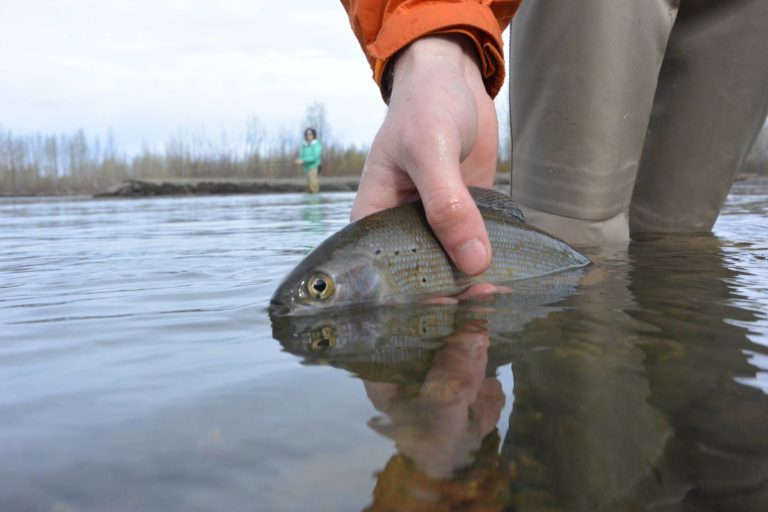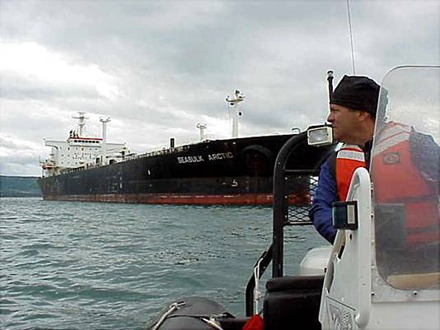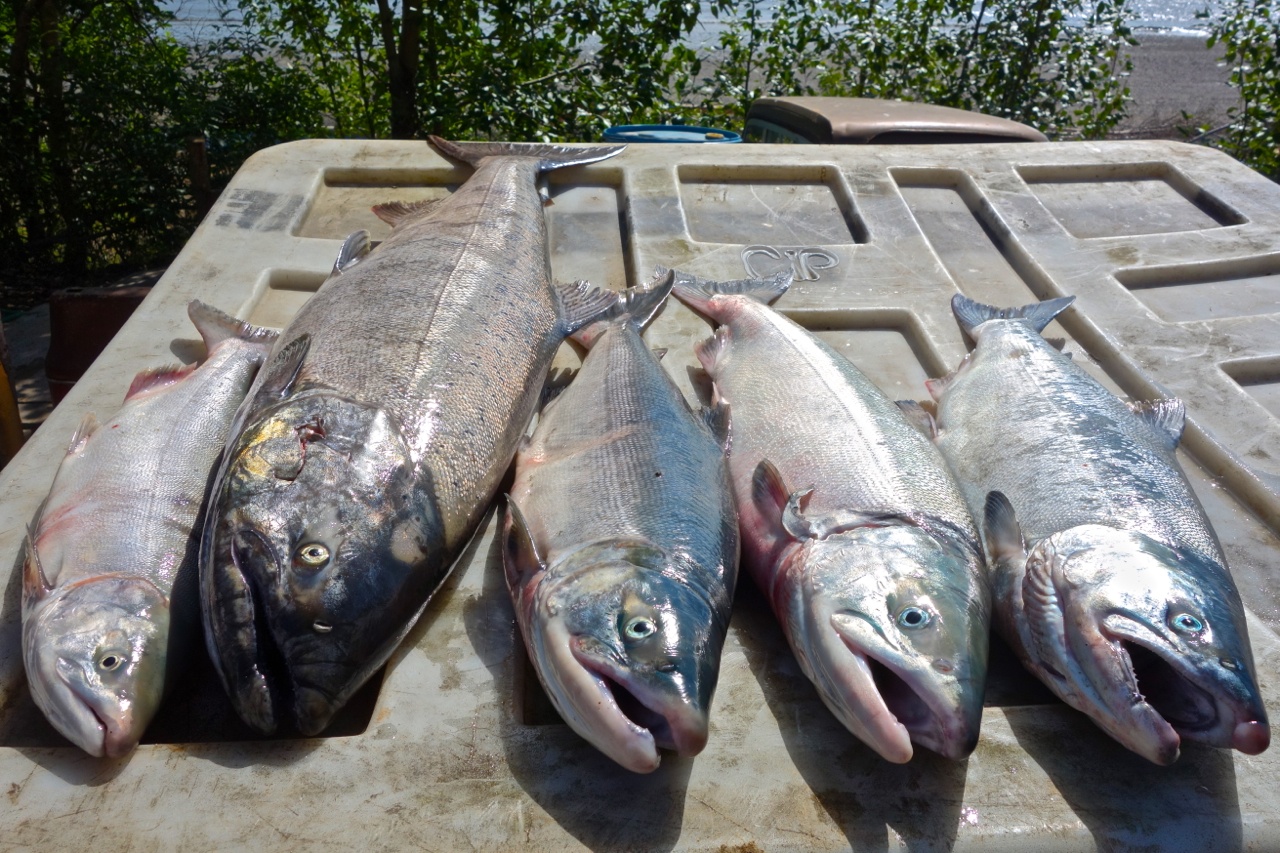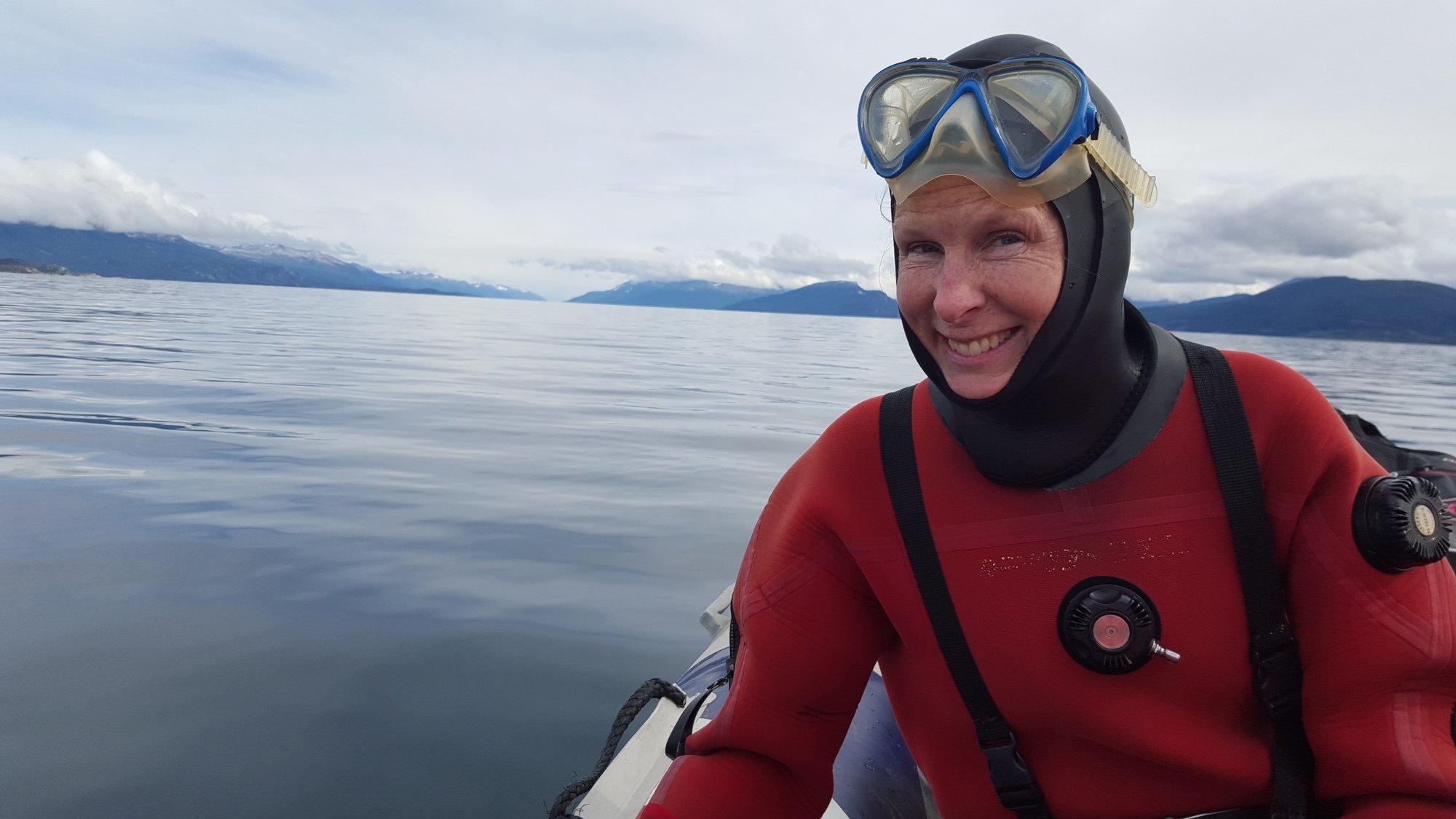
My son and I will soon board a ferry in Washington State and travel north through the fabled Inside Passage into the great wilderness that is Alaska. Glacial fjords, massive brown bears, and salmon-filled streams all come to mind as we plan our epic adventure. Unbeknownst to my 4-year-old, for me, Alaska also conjures up oil fields, climate instability, and unflappable changemakers.
Nearly 25 years ago, Alaskans concerned about rapid ecological changes in the wild northern frontier came together to form Cook Inletkeeper. Armed with the Clean Water Act and documentation of more than 4,200 violations, Cook Inletkeeper forced oil and gas producers to settle a lawsuit that provided Inletkeeper with three years of start-up funding. They’ve grown even more strategic and sophisticated over the years, living on the front lines of climate change and at the vanguard of water defense.
Cook Inletkeeper recognizes the inherent connections between people, the economy, and clean water. In a state that is arguably run by the fossil fuel industry, Cook Inletkeeper staunchly advocates for strong, local economies and lasting jobs through a just transition away from fossil fuels and toward clean energy.

With some of the richest oil and gas deposits in the world, the discovery of oil in Alaska was a driving force for statehood in 1959. Unsurprisingly, the fossil fuel industry is kicking and screaming against growing momentum to transition to renewable energy, and Cook Inletkeeper does not shy away from speaking truth to power: “Inletkeeper recognizes no debate on the existence of a changing climate, or whether humans are playing a causative role aggravating it.”
Unique among her Republican party, Alaska Senator Lisa Murkowski has said it’s time for her party to take climate change seriously because she can already see the impacts of warming temperatures in her state. Yet at the same time, Senator Murkowski is an unwavering friend to coal, oil, and gas companies and has spent much of her career helping an industry that is unaccountable to the public for the globally disastrous emissions they spew.
Meanwhile, Cook Inletkeeper is walking their walk. Actually, it looks more like they are steadily marching in a marathon toward a just and healthy future.
Scientists predict that different parts of the planet will be impacted differently by the changing climate. Some places are already experiencing impacts and Alaska is one them. Most notably, the Arctic is warming twice as fast as the rest of the planet. At least 31 Alaskan towns are at imminent risk of destruction from climate change and those residents may join a growing diaspora of climate refugees. Faced with daunting projections, Cook Inletkeeper has woven a climate lens into much of their work.
Alaska is world-renowned for its healthy, abundant, and delicious salmon and the state is full of big rivers and people who love them. Cook Inletkeeper Executive Director Carly Weir explains, “At the core, our work is clean water and salmon habitat because we recognize it’s part of what makes us Alaska, sustains our cultures, our communities. It’s something we can’t sacrifice.”

Salmon are fundamentally threatened by warming waters. Those fish that we love to eat need cold water, and cold water is not the trend. In order to have a better grasp of localized impacts, Cook Inletkeeper began a stream temperature monitoring network in 2002 to gather scientific data and inform action plans to prioritize resources and protect wild salmon habitat in the face of climate change.
They are also pragmatic and resolute in their opposition to fossil fuels by challenging coal, oil, and gas expansion. Cook Inletkeeper regularly critiques oil and gas leases to minimize harm and protect fragile areas and works in coalition to stop coal strip mining, including the Chuitna coal mine proposal which was shelved in 2017 after intense public opposition and the loss of a major investor.
Perhaps even more at the root of the problem, veteran Cook Inletkeeper Bob Shavelson is following the money and educating the public on the corporate war on Alaskan salmon as oil, gas, and mining companies buy politicians and “public” processes that harm fish habitat and the people of Alaska.
To further illustrate how impressive this organization is, Cook Inletkeeper Science Director Sue Mauger recently returned from the Antarctic where she participated in the year-long Homeward Bound program, a leadership initiative for women in the fields of science, engineering, and medicine. Sue has been studying impacts of climate and land-use change in Alaska’s wild salmon streams for 17 years.

As I prepare to take my young son on our Alaskan adventure to soak in big nature, celebrate with friends, and nourish our bodies with wild salmon, I am deeply grateful for the people of Cook Inletkeeper and their unfaltering commitment to a better future. This work is daunting and they could always use more support. Next time you enjoy that mouthwatering wild Alaskan salmon on your plate, consider becoming a member of Cook Inletkeeper.